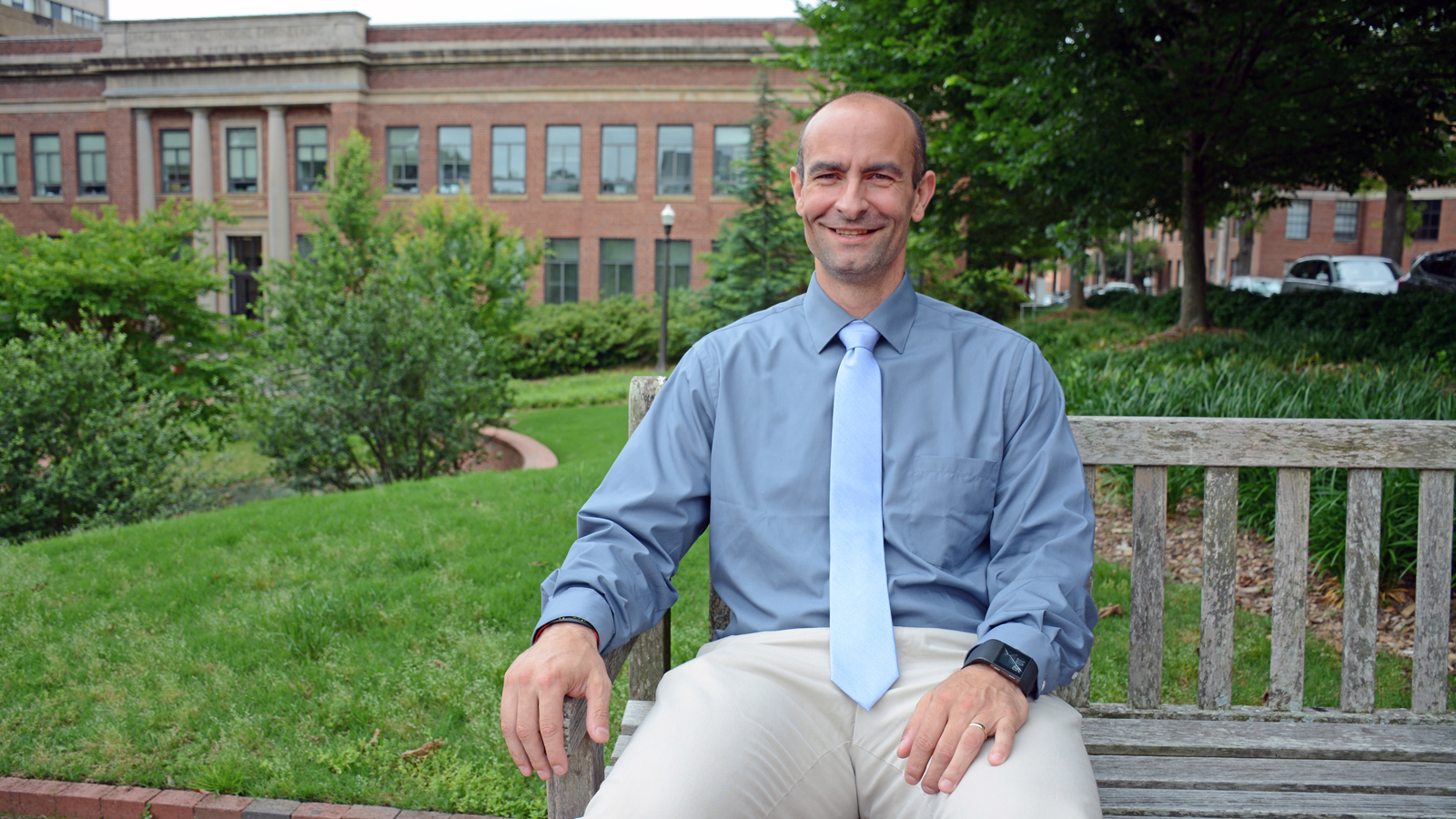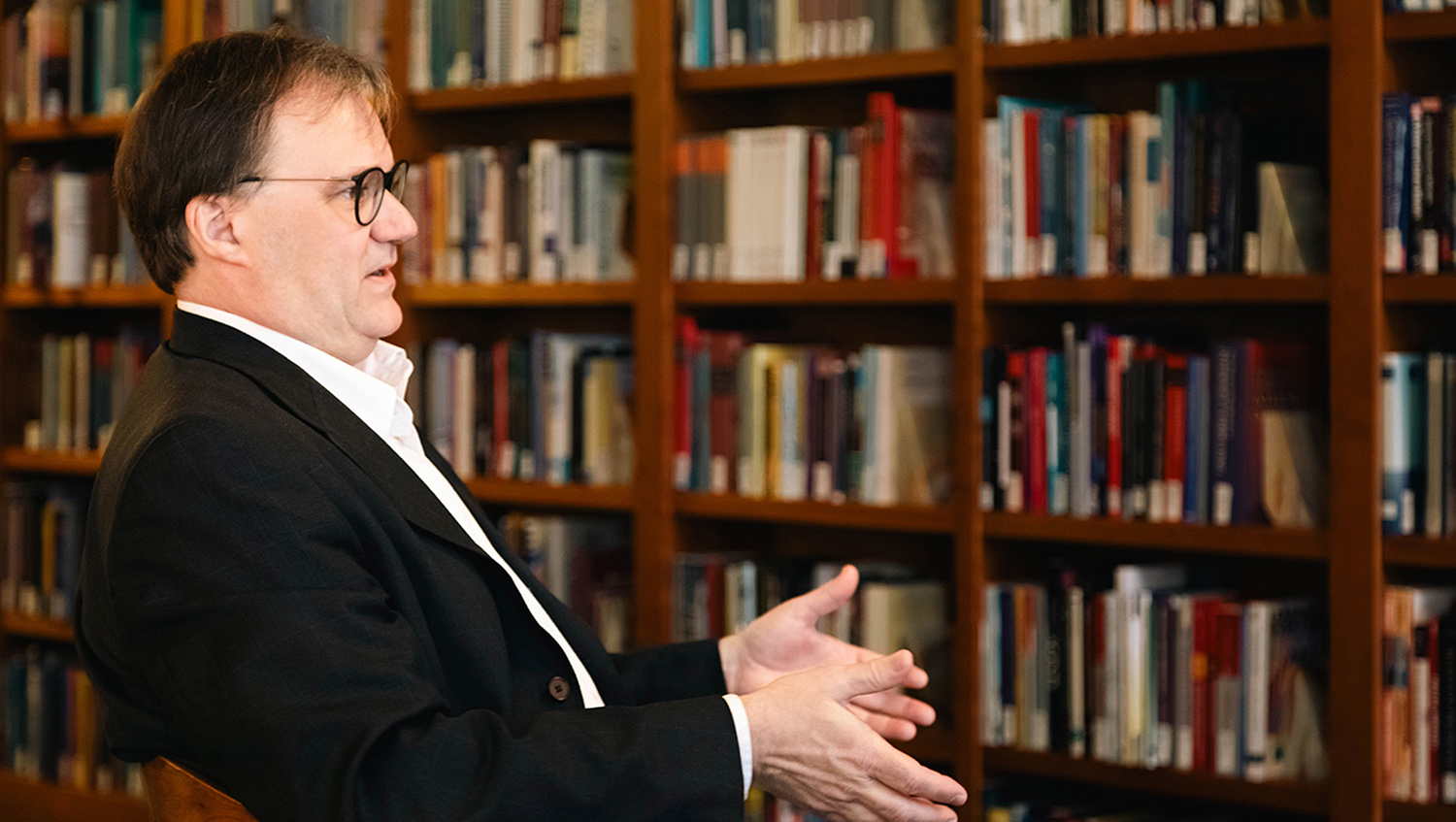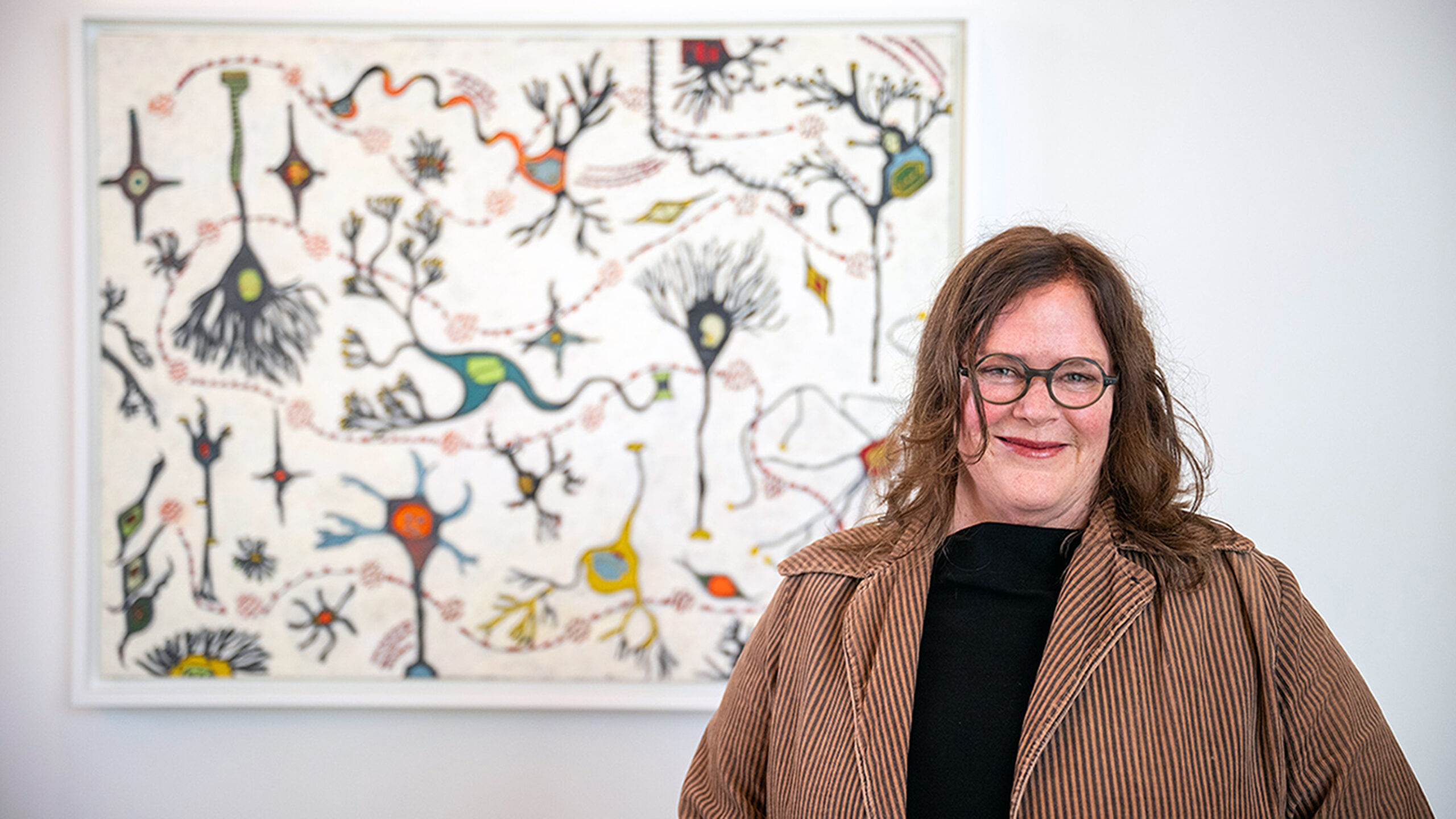Drawing from His Own Past, Student Aims to Help Others Fight Addiction

Not everyone who suffers from addiction gets a second chance. Jesse Bennett did. He plans to make the most of it.
More than four years after arriving in Raleigh homeless and addicted to heroin, Bennett is clean. He’s married. He’s a father. He’s a college student.
Pursuing a bachelor of social work at NC State, Bennett says his quest toward a diploma isn’t only about continuing his recovery. It’s about helping others.
“If you asked me four years ago if this was where I was going to be, I would have laughed,” Bennett said. “If I can share my story and make a difference — even if it’s with one person — that’s all I want.”

Bennett, 38, isn’t waiting until graduation day to start making a difference. When he’s not in class, he works as a transition case manager at Healing Transitions, a Wake County recovery center where his own transformation began.
A Wilmington native, Bennett arrived at Healing Transitions in 2012. His drug use, which started in high school, had evolved into a heroin addiction that left him essentially homeless and with a criminal record.
“I couldn’t figure out how to stop sticking needles in my arm,” Bennett said.
He needed help. A friend in Raleigh recommended the recovery center, which offers detoxification services and a peer-based recovery program, among other services. After entering the program, Bennett spent more than a year at the center before transitioning out.
He was working for a few months when his then-girlfriend (now wife) Shaina recommended he return to school. So he did, enrolling at Wake Technical Community College and earning his associate’s degree in 2015.
Bennett’s decision to apply to NC State stemmed from multiple conversations with David Fitzpatrick, an NC State social work professor and current chair of the Healing Transitions Board of Directors. Fitzpatrick said he was well aware of Bennett’s background and good grades at Wake Tech. He thought Bennett would not only do well in the Social Work program, but be an asset for the program itself.
“His lived experience gives him the ability to fully empathize with clients, which is essential in a good social worker,” Fitzpatrick said. “Jesse has actually ‘been there, done that,’ which while not essential, brings a level of comfort to certain clients.
“Jesse can share his experiences with other students, and his status as a non-traditional student brings a much-needed diversity of thought to the program. His community activism is also a model for other students — him overcoming the odds demonstrates to other students that they can be instrumental in their clients doing the same.”
(Jesse’s) lived experience gives him the ability to fully empathize with clients, which is essential in a good social worker.”
— David Fitzpatrick, NC State teaching assistant professor of social work
Bennett applied for the BSW program, a process that required a couple of additional steps because of his criminal record. However, he was eventually accepted.
“NC State took a chance on me, thankfully,” Bennett said. “NC State is really supportive of giving students second chances — I know a lot of students with backgrounds similar to mine who are here and doing well.”
Collegiate Recovery President
Once on campus, one of the first groups Bennett got involved with was the Collegiate Recovery Community at NC State. The student-run organization welcomes anyone seeking to disengage from addictive behavior. Family members, friends and individuals who back its mission are also welcome.
“It’s a supportive environment — we do study groups, have regular meetings, share information at public events like Packapalooza,” Bennett said. In the fall, the group also helps host sober tailgates at NC State and other universities.

Now the president of the organization, Bennett said his goal is to continue growing the group into a full-fledged program. Collegiate Recovery Programs, unlike communities, have paid staff and are intertwined into the application process. The group will take a step in that direction this fall when it hosts the third annual Mid-Atlantic Collegiate Recovery Conference at NC State, Oct. 14-15.
Chris Campau and Scott Luetgenau (Social Work ‘15) started NC State’s collegiate recovery community in 2013. They saw a need for a group that supports both current and prospective students in recovery, such as Bennett.
“Jesse has helped continue our mission since taking over as president and has been a major attribute to the campus,” Campau said. “His enthusiasm and ability to do the work that is usually done by a full-time staff person shows his commitment to helping other students and making the campus a safer environment for everyone.”
Advocacy in NC
In the classroom, Bennett said he’s most interested in policy-oriented social work courses. He’s recently been putting what he’s learning to use as a volunteer for the North Carolina Harm Reduction Coalition, an advocacy group for individuals impacted by drug use, sex work, overdose and other issues.
Through his involvement with the group, Bennett is helping push for legislative changes that he said will support individuals in recovery. In the spring, for instance, he participated in Recovery Advocacy Day at the General Assembly.
“We talked with legislators about the issues and programs we support, such as recovery community centers, syringe exchange programs and Naloxone programs,” Bennett said.
A few weeks later, Bennett also joined in the Law Enforcement and Community Summit on Heroin with officers from across the state. They discussed topics like law enforcement assisted diversion — programs offered in some states that divert low-level offenders into treatment centers rather than the criminal justice system.
When I got here, the social work department encouraged me to network, so that’s what I do all the time. I’m trying to meet people and get my foot in the door — volunteering somewhere starts you down that road.”
— Jesse Bennett
Bennett, who plans to eventually earn his master’s degree in social work, has also shared his story with members of the Governor’s Task Force on Mental Health and Substance Abuse Issues.
“When I got here, the social work department encouraged me to network, so that’s what I do all the time,” Bennett said. “I’m trying to meet people and get my foot in the door — volunteering somewhere starts you down that road.”
Reflecting on his busy schedule as of late, Bennett said it’s all about lending a hand to those who’ve walked a similar path — simple as that. He’s well on his way.
- Categories:


